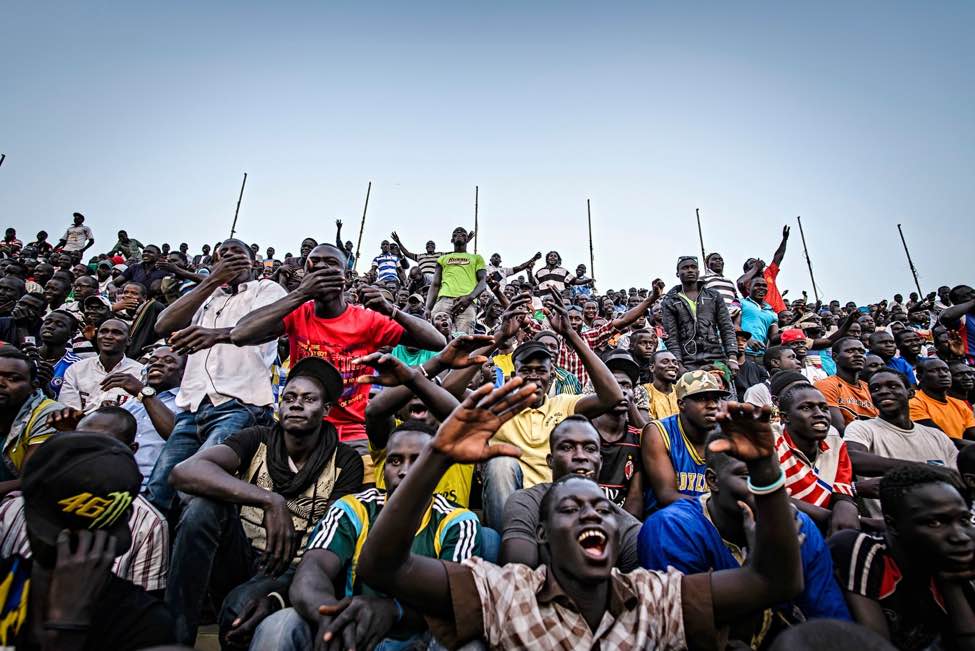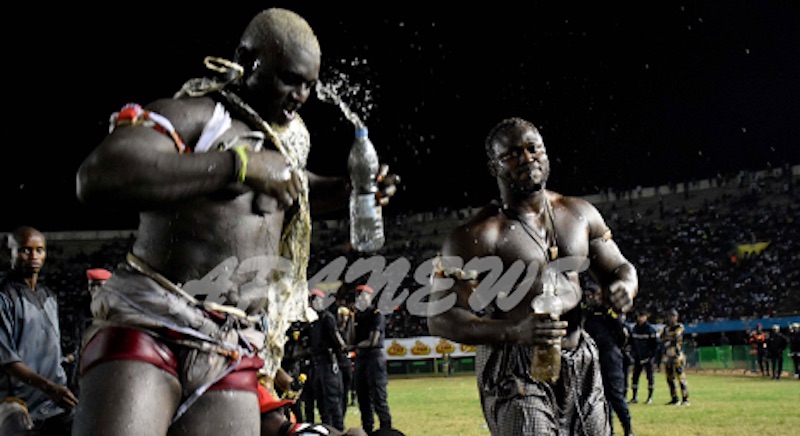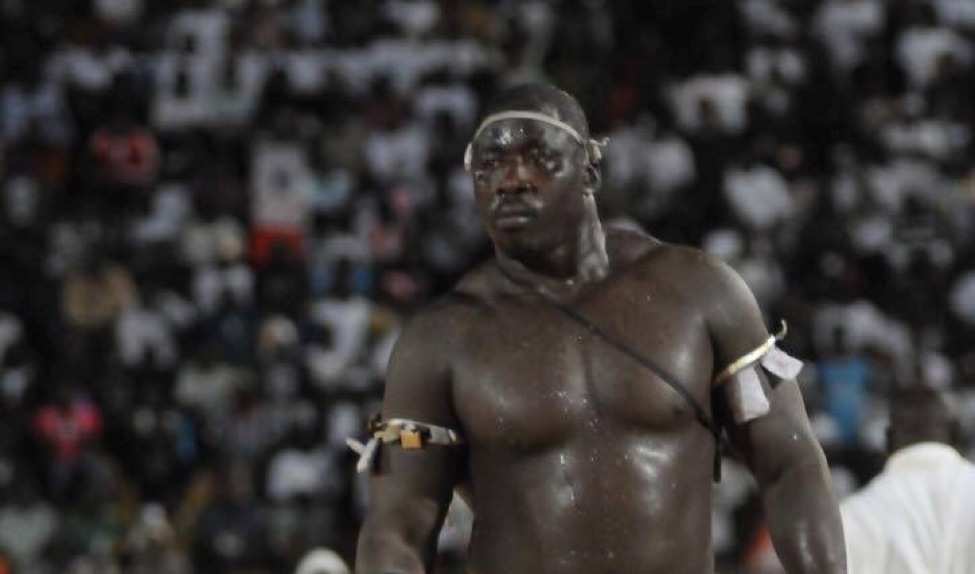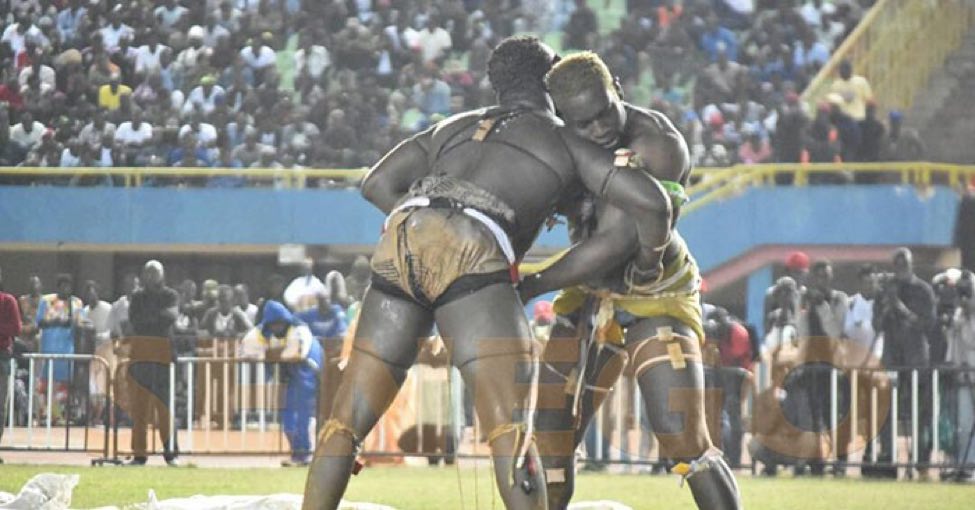Senegal is known in the world of sport for football. Twice they’ve been to the World Cup –the first ending in an audacious quarter-final bow and the second a group stage exit. This time, the West Africans are deputy kings of the continent following this year’s African Cup of Nations.
At home though, it’s a totally different ball game. Football is a loved sport and is played in all nooks and crannies but it will be surprising to find out it does not get the importance accorded to wrestling.
The traditional sport is a big part of this side of the world including neighbouring country Gambia. Millions are pumped in the game in Dakar where it’s a lot more developed.
Stadiums are filled to the brim no matter the division of wrestling.
It’s a followed trend so much so that a stadium has been built for the purpose of wrestling dubbed Lutte Arene National by the Macky Sall government on the back of incessant pleas.
Though a predominantly Muslim country, marabouts, mysticism and superstition still play a big part in the society. Wrestlers wouldn’t mind spending a good chunk of their prize monies on spiritualists to prepare concoctions for them as long it fetches them victory.
A motorcade of cars carrying holy water bottles into the stadium is not an uncommon sight.
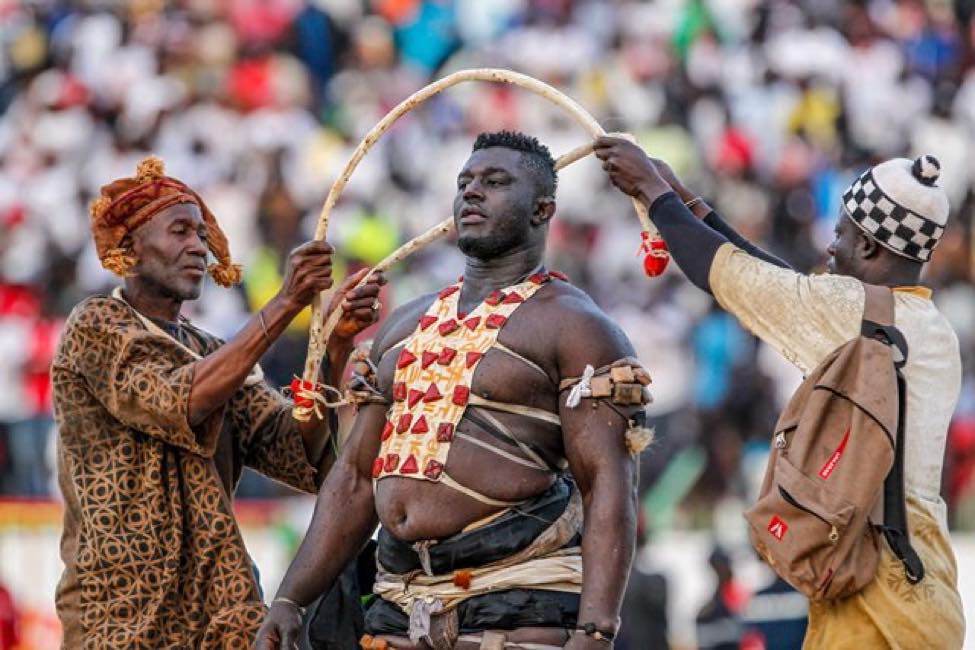
Photo: Mysticism is considered instrumental with marabouts hired as far as in Niger, Mali, Burkina Faso, Guinea Conakry and Zimbabwe.
Like football, the arena’s stars are discussed with fervent enthusiasm in the streets, clubs and other public places. The popularity of matches goes beyond the Senegal-Gambia region alone with a single A-list bout bound to rake up over millions of views online. In a push to derive revenue, pay-per-view was introduced at the beginning of last year. The initiative came at time traditional wrestling was being confronted with funding issues with sponsors then holding back owing to the exorbitant fee demands by the wrestlers. Tickets are still sold at venues but those abroad longing to watch fights are provided with a website to log into and a code they pay for from the fight promoter’s partners or online marketing team.
What Happens After a Combat Deal Is Signed?
Competing wrestlers are allowed three to four months of training. The media, mostly YouTube have been an influential factor in the changing landscape of the sport. Senegal’s only wrestling journal Sunu Lamb (meaning Our Wrestling) publishing in French has plummeted after being upstaged by YouTube wrestling channels. The international media namely France News24, Reuters, AP, the Telegraph and DailyMail of the UK dispatch reporters to cover big tussles especially ones involving the King of Arena.
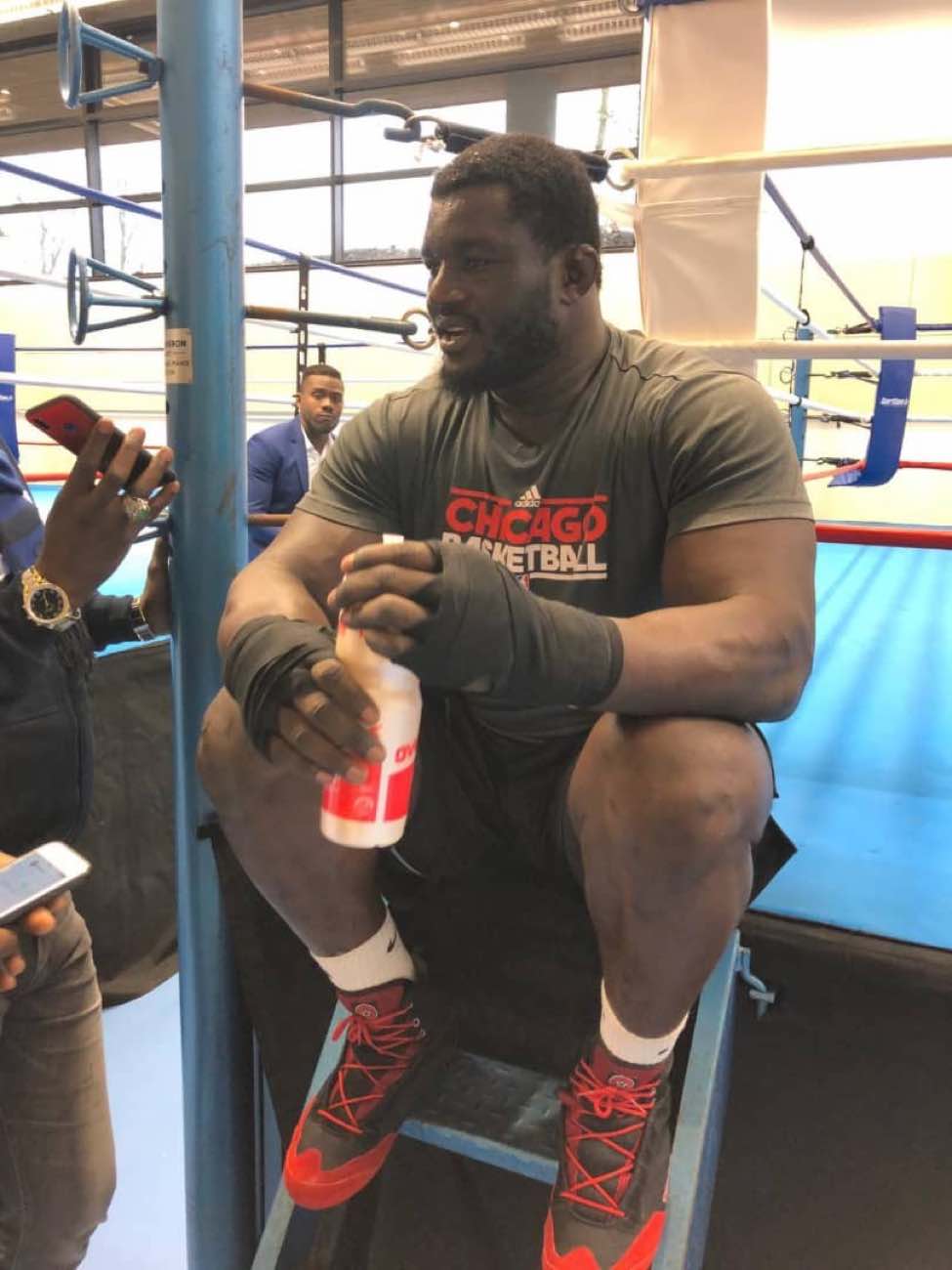
Photo: Balla Gaye takes a hiatus in his boxing drill in France.
That is how advanced the game is in Senegal. Wrestlers, who like modern boxing stars have managers, fly out abroad for training once it’s clear a fight deal is brokered and they’ve received an advance payment from the combat promoter.
Italy, France and the United States are favourite destinations of these gris-gris combatants for drills. There, Olympic boxing coaches are hired and the best gyms made use of mostly paid for by strong sympathisers, businessmen or loved ones, returning home only a month from the scheduled date of the fight.
This is preceded by nearly thirty days of freestyle training to get them acclimatizing fast before D-day. Five days before the duel, an open training session is organised allowing the local press unfettered access to the wrestler’s training regimen and inner circle.
What Is It Like On a Combat Day?
24 hours before the fight, wrestlers have their area of residence cordoned off for fear of sabotage or to ward off whatever evil spells an opponent may have cast.
Area locals take it upon themselves to be on guard for such purposes.
Poles are styled in ribbons on D-day accompanied by incessant but deafening horns of cars and drumming.
Seeming to be the norm now, parents of wrestlers become very much central in the final preparations from pouring libations to sacrifices. Club members of the wrestler are clad in matching outfits and turn, for a day, his close protection unit, hooping on cars when accompanying the wrestler to the stadium.
Each wrestler’s arrival will be announced via the central mic system which id followed by a ritual dance by the wrestler and his entourage lasting no more than twelve minutes. Undercards fights will be featured between this with the grand bout occurring, as has become the tradition at 8 pm. An additional 30 minutes is added to allow the two combatants bath in their legion of holy water bottles in the arena. If a wrestler’s bathing exceeds the allocated time, he incurs a warning which counts as a deducted point.
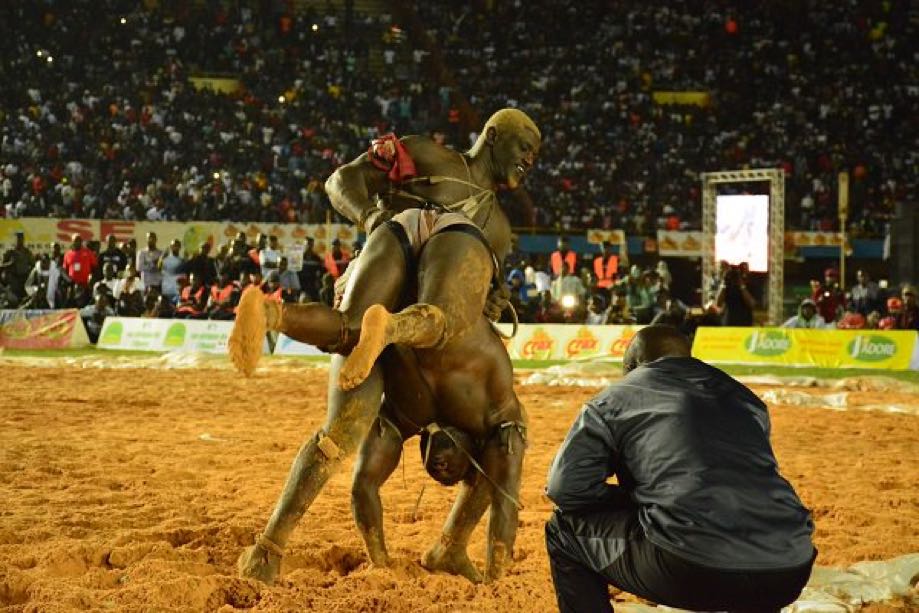
Photo: Balla Gaye stole the show last January when he turned Modou Lo upside down in a five minute clash.
The stipulated time is thirty minutes with a break in the first fifteen minutes. Going on all fours counts as a win based on the arbiter’s decision.
Medics called Ardo (literally meaning come here in Fulani parlance) are perched on the sides of the arena in the event one of the combatants is injured.
All of these will be in full display this Sunday when Modou Lo tussles it out with reigning champion Eumeu Sene before a sold-out crowd in a must-watch rematch thriller.
